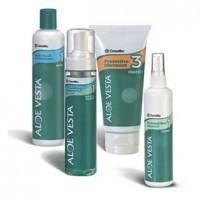Cracked lips; dry hands; itchy scalp – these are a few of the discomforts that many people weather when temperatures drop. However, it's not the cold air and snow flurries that cause skin to rebel; in fact, it's staying indoors and getting toasty warm by the heater that makes you itch.
Whether you work as a medical practitioner or you're a patient being cared for, you know all about skin woes. When frequent hand-washing or bed rest are coupled with the hot, dry air from the heater, it's a recipe for skin disaster. To keep comfortable when long hours indoors are your only option, pay extra attention to the body's largest organ.
Sleep in Salves
If you're prone to cracked lips or cracked, dry skin on the hands and feet, you should be moisturizing while you sleep all winter long. Keep a medicated lip balm on your nightstand and slather it on before you rest to wake up with moisturized, resilient lips. In addition to that, get a thick lotion or body butter and apply it generously to your most dryness-prone appendages: your hands and feet. Put on socks immediately after lotioning up your feet, and consider getting a pair of breathable cotton gloves to lock in moisturizer on your hands. Lotions with urea and alpha hydroxyl acids are most effective for absorbing and retaining moisture. Your body will thank you.
Wrap Wounds
For patients who have chronic wounds, such as diabetics or those with limited mobility, it's more important than ever to pay special attention to those areas. Wounds heal most rapidly when kept in a moist environment, and dry, hot air definitely doesn't help that. Hydrocolloid dressings and the proper wound care dressings are key for locking in moisture and promoting better wound health.
Shower Smart
As tempting as it is when it's cold outside, it's important not to take steaming-hot showers when your skin is already thirsty. Water that's bordering on scalding may feel good on cold skin, but when you get out of the shower, you'll be dehydrated and itchier than before. Take lukewarm to moderately warm showers for your best winter skin and scalp health and comfort, and don't forget to use a moisturizing body wash. Solutions containing oatmeal can be very soothing on itchy skin, and there are skincare products designed specifically for re-hydrating, such as Aloe Vesta's Skin Conditioner.
Combat Rosacea
If you or your patient has rosacea, it could lead to extremely uncomfortable breakouts and redness. To avoid flare-ups, avoid the intake of alcohol and hot beverages.
Stay Hydrated
The most important thing you can do when you're in a dry, warm environment is to stay hydrated. Just drinking the recommended amount of water daily can keep your skin from drying and flaking, and make you feel much more comfortable.
Sources
Pathway to Dry Skin Prevention and Treatment


